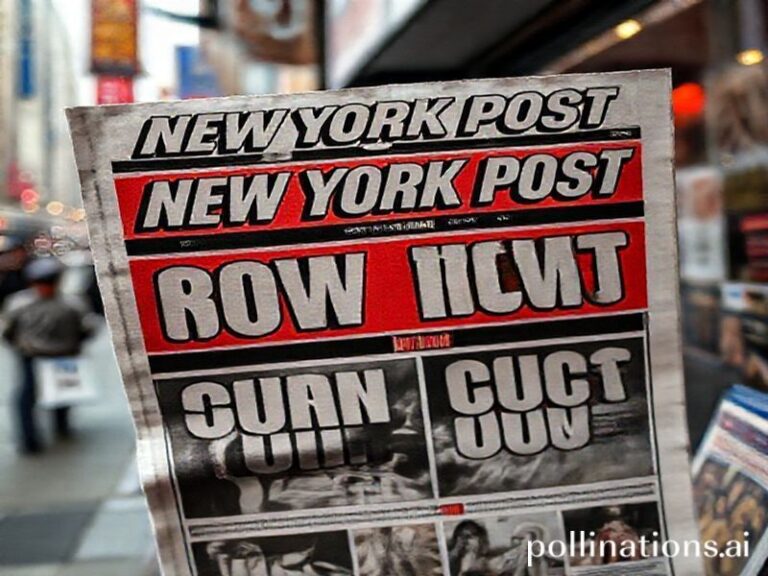Danny Webb: The Global Fable of Football’s Last Honest Man
Danny Webb and the Global Afterglow of a Football Nobody
By Special Correspondent A. Hume, filing from an airport lounge whose Wi-Fi is priced like a ransom note
Somewhere in the back pages of the non-league pyramid—where the pies are hotter than the ambition and the floodlights flicker like a dying interrogation lamp—Danny Webb is still running a sideline. The 38-year-old Englishman, lately of Tonbridge Angels and formerly the youngest Football League manager in Britain, has become a trans-continental Rorschach test: look at Webb and you see whatever you need to believe about the beautiful game’s capacity for self-reinvention.
To the Football League diehards, Webb is the prodigy who peaked at 27, a cautionary tale about giving the keys to a toddler in a tailored tracksuit. To the analytics monks in Copenhagen, he is a footnote in a regression model: “English manager, <40, relegation probability +11%.” To the Indonesian streaming addicts who watch Isthmian League highlights at 3 a.m. because sleep is cheaper than therapy, Webb is a cult anti-hero—part Pep, part pub philosopher—whose Zoom press conferences are clipped into TikTok sermons on stoic failure. The international significance, if you insist on finding one, lies in how Webb’s career arc mirrors the global gig economy of football itself. Once the FA’s great white hope, he now coaches players who keep second jobs as Amazon drivers and crypto-traders. His scouting reports are crowd-sourced from WhatsApp groups with names like “Scandi CB Free Agent Alert.” When he loses a centre-half to a Norwegian third-division side whose wage budget is measured in salmon futures, Webb shrugs: “Geography is just another opponent.” In Latin America, where clubs still worship the telenovela manager—tactical genius by day, tabloid villain by night—Webb’s understated Essex monotone has become a meme. “El Profesor Tranquilo,” they call him, superimposing his face onto Narcos posters. Somewhere in Rosario, a teenager’s phone buzzes with a GIF of Webb sipping tea while his team concedes a 94th-minute equaliser. The caption: “When life nutmegs you, applaud the skill.” Europe’s super-clubs, meanwhile, mine Webb’s data the way hedge funds short distressed debt. Scouts from Leipzig and Lyon watch his low-resolution drone footage looking for the next Jamie Vardy, the next Wout Weghorst, the next anyone who might survive the leap from car-park training ground to Champions League anthem. Webb knows the game: he’s essentially running a finishing school for football’s precariat, funded by raffle tickets and the occasional crypto-shitcoin sponsorship whose logo looks like a failed pregnancy test. The broader significance, if we must extract a moral from this minor-key opera, is that Danny Webb embodies the sport’s grim egalitarian truth: talent is global, but livelihoods are hyperlocal. While FIFA’s president pockets another Qatari fountain pen, Webb texts his left-back to remind him the Tuesday bus leaves at 7:15 a.m. sharp. Somewhere in Lagos, a 14-year-old wearing a knockoff Tonbridge kit—ordered via Alibaba, delivered by camel—dreams not of Old Trafford but of the gleaming artificial turf of Longmead Stadium. That’s the true supply chain: aspiration trickles down faster than money trickles up. And so the world spins. COP28 delegates argue over carbon credits while Webb’s club burns 47,000 kilowatts trying to stop a frozen pitch in Kent. Tech bros pitch NFT mascots; Webb’s chairman wonders if the burger van can accept Apple Pay. On the same weekend that Saudi Arabia buys another midfield for pocket change, Tonbridge’s star striker negotiates a £30 appearance bonus and a free protein shake. Fairness, like the offside rule, is open to interpretation. In the end, Danny Webb’s greatest achievement may be existential: proof that football’s romantic mythos survives even when stripped of money, glamour, and victory. He is Sisyphus with a clipboard, rolling the ball up a muddy hill every Saturday, knowing perfectly well it will roll back down by tea time. The crowd of 612 souls—plus a few thousand insomniac streamers in Manila—applauds anyway. Because what else are we going to do? Read another think-piece about VAR?







